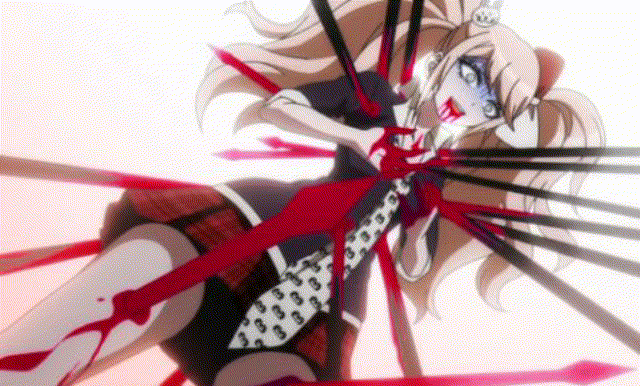

Hence, she subjects her sister to constant abuse before ultimately killing her and subjecting her classmates to the torturous experience of the Killing School Life. However, because she is heavily obsessed with despair, she uses her love as a means to fulfill her desire of falling into greater despair. Even outside of her alternate self, Junko's love extends to her sister, Mukuro, and her fellow classmates. Her alternate personality, Ryōko Otonashi, is proof of this as she was very much in love with her childhood friend, Yasuke Matsuda, who in turn cared for her, though he often hid his feelings from her. Though she initially comes off as lacking emotion, she is in fact capable of feeling genuine love. Due to this, Junko is willing to do anything to bring about despair. Her motives center around causing despair either in others or herself. Her boredom is interrelated with her fascination with despair, as she believes it is the only emotion worth having. Junko's personality and mannerisms tend to be very erratic and unstable she claims that her high level of intelligence makes her bored of even her own personality. Ironically, her popularity as a fashionista was due to an air of being 'not fake'. Junko is a young woman who took the country by storm with her extravagant tastes and cheerful charisma. In the stage play adaptations, she was portrayed by the late Sayaka Kanda, who also portrayed her sister Mukuro Ikusaba and later voiced Kaede Akamatsu in Danganronpa V3: Killing Harmony.



Miller and Erin Fitzgerald in the English dubbed versions of the games. She is voiced by Megumi Toyoguchi in the Japanese dubbed version for both the video games and the anime adaptations.4.1 Danganronpa 3: The End of Hope's Peak High School.


 0 kommentar(er)
0 kommentar(er)
